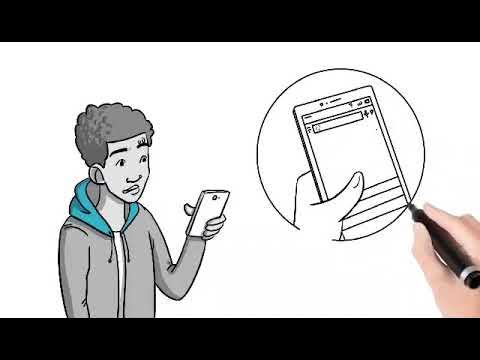Teen Substance Use & Abuse (Alcohol, Tobacco, Vaping, Marijuana, and More)
Summary
TLDRThis video discusses the risks of experimenting with substances, especially for college students. Jeremiah, a student, tries different substances like alcohol and marijuana with friends. At a party, he unknowingly smokes synthetic weed (K2) and has no memory of his actions, which alarms him. The video highlights the dangers of using non-prescribed substances, emphasizing that casual experimentation can lead to substance abuse. It encourages viewers to be aware of the risks, consider the long-term consequences, and seek guidance from a counselor if needed.
Takeaways
- ⚠️ College students often experiment with various substances, including vaping, weed, tobacco, alcohol, and even harder drugs like cocaine and meth.
- 🚫 Using substances that aren't prescribed by a doctor can lead to negative effects on both physical and mental health.
- 🤔 Jeremiah, a college student, enjoys partying with friends, consuming alcohol, and smoking marijuana to relax from school pressures.
- ❗ At a party, Jeremiah unknowingly smoked K2, a synthetic drug, and later realized he couldn't remember what happened.
- 😟 Jeremiah is concerned because he felt pressured to perform and be the life of the party but hated losing control and memory.
- 💡 Taking unknown substances poses a significant risk, as you may not be aware of what you're consuming or how it will affect you.
- 📉 Experimenting with substances can easily spiral into a substance use problem, leading to long-lasting negative consequences.
- 🧠 Casual drug use among young people is becoming more common, with dangerous consequences for both mental and physical health.
- ❌ A good rule to follow: If a drug isn't prescribed to you, avoid taking it.
- 👥 If you're unsure about using substances or feeling pressured, it's important to know the risks and reach out to a counselor for help.
Q & A
What substances are commonly experimented with by college students according to the transcript?
-College students often experiment with substances like vaping, weed, tobacco, molly, alcohol, and sometimes 'hard drugs' like cocaine, meth, or opioids such as heroin.
What is the risk of taking substances that are not prescribed by a doctor?
-The risk of taking substances that are not prescribed by a doctor includes potential negative effects on physical and mental health, as well as the danger of not knowing exactly what the substance is or how it will impact the user.
Who is Jeremiah in the transcript and what happened to him at a party?
-Jeremiah is a college student who enjoys drinking alcohol and occasionally smoking marijuana with his friends. At a party, he smoked a substance given to him by a girl without knowing what it was, later finding out it was K2, a synthetic type of weed. He has no memory of what happened afterward.
Why is Jeremiah concerned about his experience with K2?
-Jeremiah is concerned because he has no memory of what happened while under the influence of K2, and he doesn't want to take another substance like that again. He also feels pressure from his friends to act a certain way and be the 'life of the party,' which adds to his stress.
What is K2, and why is it dangerous?
-K2 is a synthetic type of 'weed' and can be dangerous because it often contains unknown chemicals, leading to unpredictable and sometimes harmful effects. Users may not know what they are ingesting or how it will affect them.
What is the main message conveyed about experimenting with substances in the transcript?
-The main message is that experimenting with substances, especially those not prescribed by a doctor, can have negative consequences. It can lead to unintended use of more dangerous substances, physical and mental health issues, and substance use problems.
What advice does the transcript give about using substances that are not prescribed?
-The transcript advises that if a drug is not prescribed to you, you should not take it. It also encourages individuals to be aware of the risks and potential consequences of substance use and to reach out to a counselor if they have concerns.
What are some of the physical and mental health consequences of using substances mentioned in the transcript?
-The transcript mentions that using substances, especially those not prescribed, can lead to dangerous physical and mental health consequences, though it does not specify the exact consequences.
How can casual or experimental substance use escalate according to the transcript?
-Casual or experimental substance use can quickly turn into a substance use problem, leading to long-lasting and negative consequences.
What steps can someone take before deciding to use a substance according to the transcript?
-Before deciding to use a substance, someone should know the risks and potential consequences and consider reaching out to a counselor for advice or support.
Outlines

This section is available to paid users only. Please upgrade to access this part.
Upgrade NowMindmap

This section is available to paid users only. Please upgrade to access this part.
Upgrade NowKeywords

This section is available to paid users only. Please upgrade to access this part.
Upgrade NowHighlights

This section is available to paid users only. Please upgrade to access this part.
Upgrade NowTranscripts

This section is available to paid users only. Please upgrade to access this part.
Upgrade NowBrowse More Related Video

September 4, 2025

ZAT Adiktif narkotika psikotropika IPA kelas 9 kurikulum merdeka | pembatik level 3 #pembatik2023

What do we really mean when we say college isn’t for everyone? | Alex Bernadotte | TEDxBYU

If you are starting college this fall, and you are a STEM major, make sure you understand this!

Should YOU Be Taking BPC-157 Peptides?

Jangan memakai minyak berulang-ulang | JELANG SIANG
5.0 / 5 (0 votes)